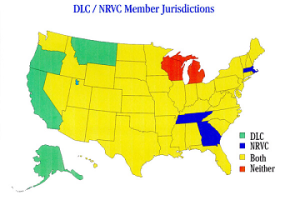 With its beautiful beaches, countless amusement parks, and glorious sunsets, the fact that tourism is the number one industry in Florida is no surprise to anyone. Factor in icy weather that can be found in many other regions of the U.S., and it’s easy to see why people come here in droves. If you live in Florida, however, a change of scenery is always pleasant. Even if you view Florida as Paradise, a change of pace is often fulfilling.
With its beautiful beaches, countless amusement parks, and glorious sunsets, the fact that tourism is the number one industry in Florida is no surprise to anyone. Factor in icy weather that can be found in many other regions of the U.S., and it’s easy to see why people come here in droves. If you live in Florida, however, a change of scenery is always pleasant. Even if you view Florida as Paradise, a change of pace is often fulfilling.
It is also well-known that there is a large volume of New Yorkers who vacation in Florida, but there is also a great number of Florida residents who choose to leave the sub-tropical climate of South Florida for the bright lights and big city of New York. Even though we have all heard the expression “In a New York minute,” and know that it means really, really fast, when it comes to driving in New York, that kind of thinking can seriously effect your Florida driver’s license.
If you are driving to your vacation destination, you might want to keep the Driver License Compact (DLC) in mind, especially if you are speeding to get to or from your destination. The DLC is an inter-state agreement between many of the states which permits the exchange of information regarding traffic violations committed by those who live in one state, but commit the traffic violation in another. This, however, only occurs if the state in which the driver is licensed has an equitable statute governing the traffic violation.
Once the information is sent to the home state (the state in which the driver is licensed), the driver then suffers the penalties that apply to that offense in the home state. This is because it is the violation that transfers and not the penalties associated with it. As an example, if a Florida driver gets a traffic ticket in New York State for failing to obey a traffic device, once that information is communicated back to Florida, four points will be assessed against your driver’s license, even though in the State of New York it is only a 2-point violation. Any fines, however, are to be paid to the state in which the traffic ticket was issued to avoid the driver having to pay the fine twice.
The DLC usually only applies to more serious traffic violations such as speeding, driving with a suspended license, or driving while drunk or otherwise impaired. It is generally not intended to cover non-moving violations such as parking tickets. When you consider the difficulty of parking in New York City, this is definitely a good thing. Conversely, if a driver licensed in the state of New York gets a traffic ticket while vacationing in Florida, it is rare that New York adds points to the license unless the New York driver commits a serious traffic violation that involves alcohol or drug-related offenses.
Getting a traffic ticket in some states doesn’t necessarily mean that the offense will show up on your driver’s license in the form of points on your license. Every state has varying laws about how it handles out-of-state drivers who get traffic tickets; therefore, how each state deals with traffic violations can be quite complex. You are likely to fare much better if you have a knowledgeable traffic ticket attorney fighting the traffic ticket for you. It is not only our experience with Florida law that benefits you, but also our ability to investigate and understand the complexities of traffic laws in other states as to how they apply to Florida drivers. If you have been issued a traffic citation while in another state, give the Traffic Ticket Team a call at 954-967-9888. We will provide you with a free consultation in order to help you determine what out-of-state penalties you may suffer, as well as those imposed by the State of Florida.

FREE CONSULTATION
866-433-3363
Call now or contact us for a fast, free, no obligation consultation.

